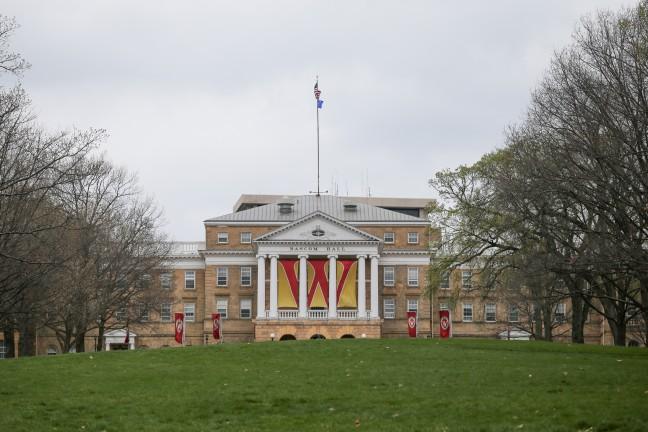University of Wisconsin System students will once again not see tuition rise next year, under the annual budget the UW System Board of Regents approved Thursday.
The regents unanimously approved the nearly $6.1 million budget, which will spend about 1.7 percent more than the last budget in large part due to 1 percent raises for employees.
The approved budget does not raise tuition for UW students, although segregated fees will rise at UW by $7, and room and board fees will increase by $266. Across the UW System campuses, the average hike in segregated fees will be 3.6 percent, while the average increase in room and board fees will be 2.7 percent.
The UW System was already barred from raising tuition for resident undergraduates after a controversy last year when state lawmakers discovered the UW System held hundreds of millions of dollars in reserves while they raised tuition. Gov. Scott Walker has called for an additional two-year freeze in the next biennial budget.
The regents opted on Thursday to keep tuition levels the same for graduate and out-of-state students, as well.
Regent Margaret Farrow, however, said while freezing tuition for resident students makes UW education more accessible for Wisconsinites, there is no reason why tuition should remain frozen for out-of-state students.
“This price tag is a bargain,” Farrow said. “All of the quality education at all of our institutions … is a bargain for non-residents, and I wish they were paying more.”
Board of Regents President Michael Falbo noted several university chancellors have brought up this point, and it will be considered in the future. UW Chancellor Rebecca Blank, for example, has considered tuition increases for out-of-state students.
The regents also pushed for a $14.9 million boost in state funds for a grant program, seeking to eliminate the grant’s current waiting list. They are requesting that state lawmakers allocate more money in the 2015-2017 biennial budget for the program.
UW System President Ray Cross said about 10 percent of those who are eligible for state financial aid are turned away due to lack of funds.
“We all know that student debt and the cost of higher education are two major concerns that appear in almost every newspaper around the country when you talk about higher education,” Cross said. “We must be aggressive in our efforts to keep cost down and recue student debt.”
The approved budget would spend down an additional $112 million of the UW System’s reserves. Those reserves have dropped from $1.097 billion in last June to the projected $917 million at the end of this month, a 16.5 percent reduction over the past year, according to UW System Interim Vice President for Finance Steve Wildeck. He said they’re projected to drop to $804 million by June of 2015.
Cross said the amount of the reserves that come from tuition will drop significantly, from $551 million last June to $304 million by next June — a 45 percent drop over two years.
“These reductions were both strategic and necessary,” Cross said. “However, prudent business practices require adequate reserves to address the volatility of an organization’s finances. I am committed to working with the board and with campus leadership to find that appropriate sweet spot, that appropriate balance.”
The reductions have led to more careful budget planning, Cross said. The management practices are still under reform, but have already gone through what Cross said were “the most significant changes since the creation of the UW System” in 1971.


















